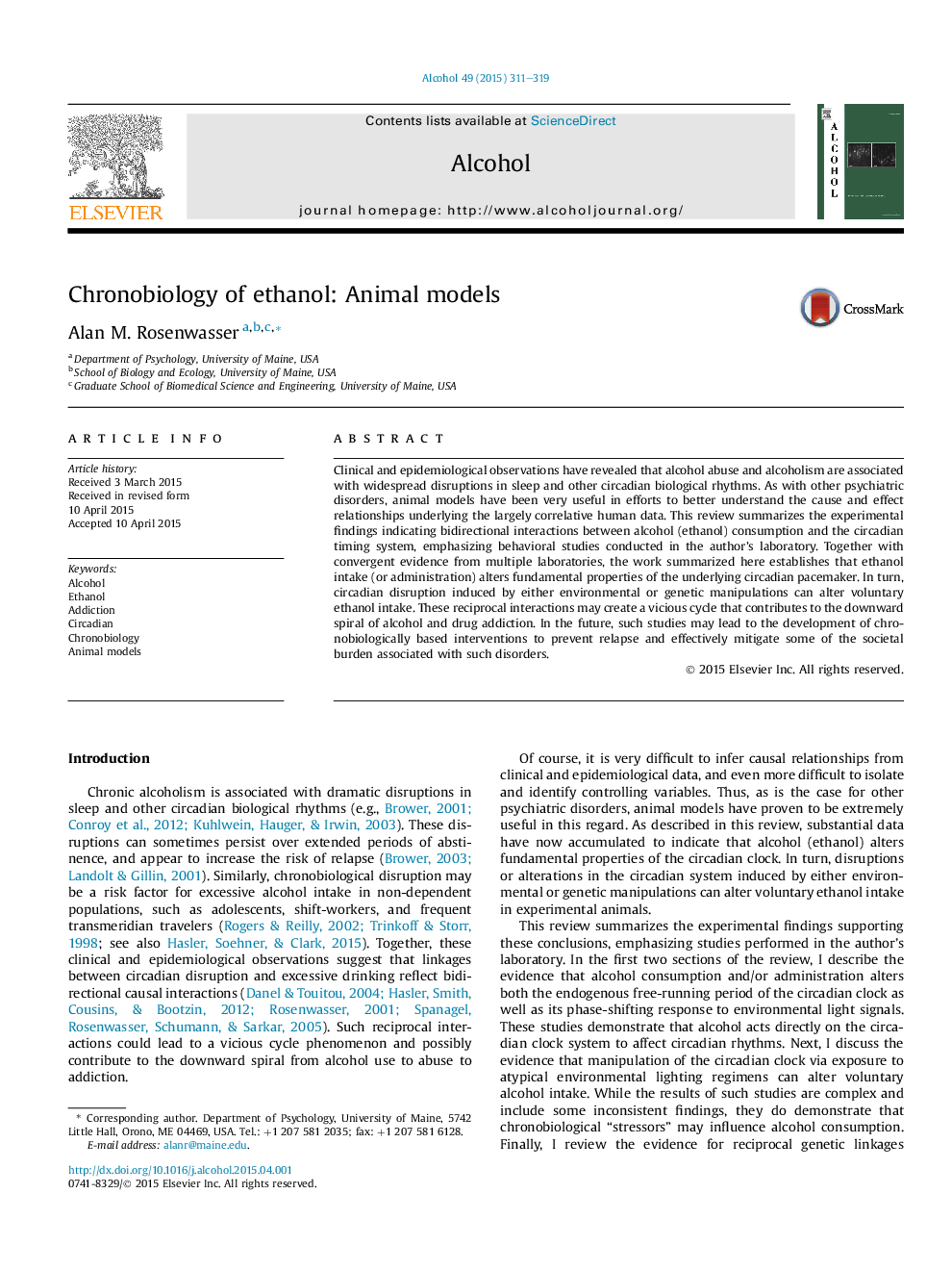| Article ID | Journal | Published Year | Pages | File Type |
|---|---|---|---|---|
| 1066840 | Alcohol | 2015 | 9 Pages |
•Ethanol alters fundamental properties of the circadian pacemaker.•Manipulations of environmental lighting alter voluntary ethanol intake.•Selective breeding for ethanol response alters circadian phenotype.•Bidirectional relationships link ethanol to the circadian timing system.
Clinical and epidemiological observations have revealed that alcohol abuse and alcoholism are associated with widespread disruptions in sleep and other circadian biological rhythms. As with other psychiatric disorders, animal models have been very useful in efforts to better understand the cause and effect relationships underlying the largely correlative human data. This review summarizes the experimental findings indicating bidirectional interactions between alcohol (ethanol) consumption and the circadian timing system, emphasizing behavioral studies conducted in the author's laboratory. Together with convergent evidence from multiple laboratories, the work summarized here establishes that ethanol intake (or administration) alters fundamental properties of the underlying circadian pacemaker. In turn, circadian disruption induced by either environmental or genetic manipulations can alter voluntary ethanol intake. These reciprocal interactions may create a vicious cycle that contributes to the downward spiral of alcohol and drug addiction. In the future, such studies may lead to the development of chronobiologically based interventions to prevent relapse and effectively mitigate some of the societal burden associated with such disorders.
